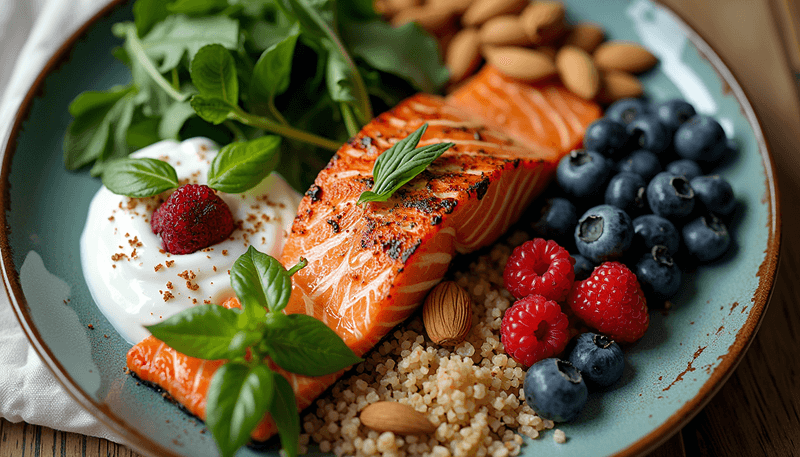Phone Apps Fall Short on Bone Health

Your phone might hold thousands of photos, manage your banking, and even count your steps - but can it help protect your bones during menopause? A surprising new scientific review reveals serious gaps in menopause-focused mobile apps, particularly when it comes to bone health guidance. As a doctor and women's health advocate, this caught my attention because bone loss accelerates significantly during menopause, yet only half of the available apps even mention osteoporosis.
The Hidden Cost of Inadequate App Support
Let's talk about what's actually happening in your body during menopause. When estrogen levels drop, your bones can lose density up to 20% faster than before. Think of your bones like a savings account - during your younger years, you build up bone density "savings." But without proper management during menopause, that account can be depleted much faster than it should.
"Would you trust your financial future to an app that only gave you half the information you needed? Then why trust your bone health to one?"
The research examined 236 menopause-related apps and found only 28 met basic criteria for review. Of those, just 16 apps included any information about osteoporosis. Even more concerning, most of these apps:
- Required college-level reading comprehension
- Lacked input from medical professionals
- Failed to include practical tools for bone health management
- Had limited functionality beyond basic information
The Power of Evidence-Based Exercise
One bright spot in the research was the recognition of exercise's role in bone health. The most effective apps recommended specific types of exercise proven to maintain bone density:
- High-intensity interval training
- Weight-bearing exercises
- Resistance training with bands or weights
- Balance-focused activities like yoga and tai chi
Think of exercise as building scaffolding around a building. Each workout helps reinforce your bone structure, making it more resilient against future challenges. Studies show that women who engage in regular strength training can significantly slow bone loss during menopause.
What small step could you take today to add more bone-strengthening movement to your routine?
Beyond Apps: Creating Your Bone Health Blueprint
While apps can be helpful tools, the research shows we need a more comprehensive approach. Here's what worked in successful bone health interventions:
-
Lifestyle Integration:
- Regular exposure to sunlight for vitamin D
- Calcium-rich foods at every meal
- Limiting alcohol consumption
- Avoiding smoking
-
Professional Guidance:
- Regular bone density screenings
- Consultation with healthcare providers
- Proper supplement dosing
- Early intervention strategies
-
Community Support:
- Group exercise classes
- Shared accountability
- Educational workshops
- Family involvement
"The best app in the world can't replace the power of community and professional guidance in your health journey."
When selecting a menopause app, look for these key features:
- Clear, simple language you can understand easily
- Evidence-based information with cited sources
- Regular updates and expert involvement
- Practical tools for tracking and implementing changes
- Integration with healthcare providers
The research highlighted two standout apps: "Megs Menopause" and "Caria: Menopause & Midlife" scored highest in quality and functionality. However, even these top performers had room for improvement in their bone health guidance.
Moving Forward with Smart Technology
The good news? This research is pushing developers to create better tools. Future apps may include:
- Personalized exercise programs
- Real-time tracking of bone health indicators
- Direct communication with healthcare providers
- Community support features
- Simple, actionable daily recommendations
Until then, use apps as just one tool in your broader health strategy. Your bone health is too important to rely solely on current app technology.
How will you combine technology with traditional healthcare support to protect your bone health during menopause?
Take action today: Choose one bone-strengthening activity and commit to it for the next week. Whether it's a daily 15-minute weight training session or adding calcium-rich foods to your meals, small consistent actions build strong foundations for long-term health.
The path to strong bones during menopause isn't found in an app alone - it's created through informed choices, consistent action, and proper support. Let's use technology wisely while building real-world habits that protect our health for years to come.

Dr. Anya Sharma, MD
Dr. Anya Sharma is a board-certified gynecologist with over a decade of experience specializing in women's health and patient education. She graduated from Johns Hopkins School of Medicine and completed her residency in Obstetrics and Gynecology at a top hospital in New York City. With a passion for empowering women, Anya transitioned to content creation to provide accessible, evidence-based information on health topics relevant to mid-aged women. Her empathetic and pragmatic approach combines medical expertise with relatable insights, making her a trusted voice in the field.








